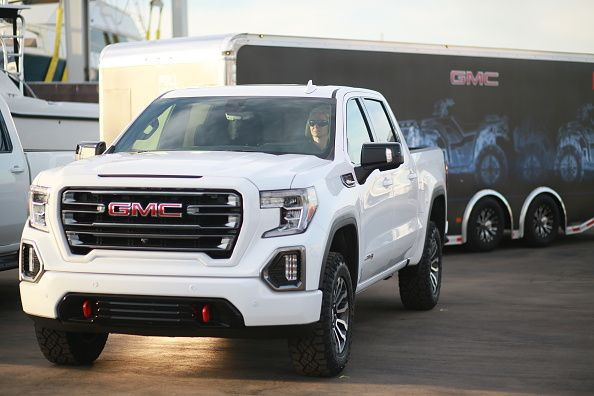Why Ford Won't Follow GM And Exit Europe

Ford Motor Company (NYSE:F) lost $398 million in Europe in 2018, a sharp drop from the $367 million profit it posted in 2017 -- and an enormous swing from its $1.2 billion profit in the region in 2016.
Clearly, things have been going in the wrong direction for Ford in the Old World. While old rival General Motors gave up on Europe in 2017, selling its German subsidiary to Peugeot, Ford isn't likely to follow GM out the door: The Blue Oval has been an important player in Europe for decades.
Among other things, Ford is the largest-selling auto brand in the United Kingdom -- a title it isn't interested in walking away from. But CEO Jim Hackett acknowledges that Ford needs to be able to generate a sustainable profit in Europe, something that it's clearly not doing now.
Investors have been waiting to hear how Ford plans to do that. Over the last few weeks, Ford's plan to revamp its European operation has begun to come into focus. Here's what we know.
Ford's plan for sustainable profits in Europe
Ford gave an overview of its plan for Europe on Jan. 10, and added some details in its fourth-quarter earnings call last week. Here are the key points.
Cost reductions
Ford plans to consolidate its European offices and close at least one factory, possibly more. "Thousands" of jobs will be eliminated, though the exact total hasn't been worked out yet. (Ford is in the process of negotiating with union leaders in Europe.) Ford will also simplify its European manufacturing by reducing the number of options and trim variants on its vehicles, cutting costs.
Product-line overhaul
Ford has already said that it will cut most of its car models in North America. Ford probably won't do exactly the same thing in Europe, where the Focus and Fiesta are its biggest sellers. But it has promised a "more targeted" lineup with more SUVs and commercial vehicles, which might spell doom for one or more sedan models. Ford has already said that the Focus-based C-Max wagon is on the chopping block, and the Mondeo (the European version of the Fusion sedan) could well follow.
Ford said that it will organize its future product-development efforts in Europe around three groups of vehicles: commercial vehicles, passenger vehicles, and limited-volume, high-profit imports (like the Mustang).
During Ford's earnings call, global product chief Jim Farley talked up the importance of commercial vehicles in particular, noting that Ford's share of the market for commercial vehicles in Europe has now grown for five consecutive years. He said that Ford will now have a dedicated group developing commercial vehicles for Europe, starting with revamped versions of the Ranger pickup and some of the Transit vans later in 2019.
Russia
Ford said that it is undertaking a "strategic review" of its Russia operation, meaning that it's in the process of deciding whether it's worth keeping its Russian factories open. It will announce its decision in the second quarter of 2019.
Electrification
Like most of the other automakers that do business in Europe, Ford knows that the political winds are blowing toward electrification. It said that from now on, every new Ford in Europe will have a hybrid or full battery-electric option, starting with the all-new Focus introduced late last year.
The bottom line: A 6% margin -- eventually
Ford's long-term goal is a sustainable 6% operating margin in Europe. That's fairly modest, compared to its margins in North America in recent years. But it's still somewhat ambitious, given Europeans' preferences for smaller (read: less profitable) vehicles and the high costs of manufacturing in the region.
Ford executives were hesitant to say when the Blue Oval might hit its goals in Europe, because of the external "headwinds" that hurt its 2018 results. Some of those headwinds, like the uncertainties around Brexit, are still playing out. I do think Ford will be able to hit its margin target once it makes the changes it outlined earlier this month, and once those headwinds subside -- but the uncertainties around timing could make things frustrating for Ford investors for a while longer.
This article originally appeared in The Motley Fool.
John Rosevear is the senior auto specialist for Fool.com. John has been writing about the auto business and investing for over 20 years, and for The Motley Fool since 2007. The Motley Fool has a disclosure policy.




















